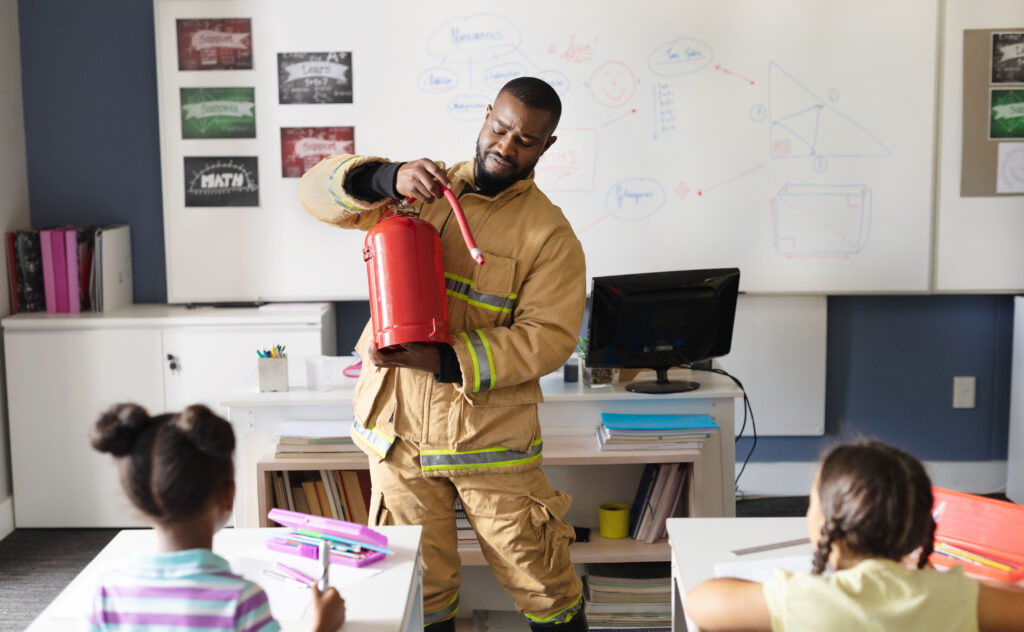
Teachers often hear students ask in frustration, “Why do I have to learn this?” They can’t connect a lesson on subordinate clauses to being an editor for a best-selling novel or dividing fractions to being a prestigious chef. Teachers try to explain, but often students just miss it. Even if they find new discoveries in their science fair projects or learn how to campaign for student council from social studies lessons, there’s still disengagement. This limits efforts on assignments and sometimes results in mediocre grades.
The more excited students are about new information, the better they’ll perform. So how do teachers connect lessons to the real world to peak students’ interests?
Invite professionals into the classroom as guest speakers.
As a student, I only saw guest speakers during Career Day, where they crammed so much information into 10-minute intervals that their professions were still out of reach. Their advice was usually “Listen to your teacher and go to college.” I wanted more.
You don’t have to wait until Career Day to bring in a guest presenter. Reach out to friends, family members and community partners. Be flexible in your lessons and determine how the lesson can connect to a certain profession.
For example, I invited my gynecologist to my middle school reading class. I know one would associate a doctor with science, but I did a lesson on primary sources. She discussed how she researches credible sources to provide the best patient care and how she uses her patients as primary sources to learn how to treat them. She mentioned recent medical discoveries that improved women’s health because of research. Students had a greater respect for research and citing their sources. I even caught students in the hallways asking each other “What is the source?” and “Where did you get that information?”
For another example, my violin instructor visited my class for a unit on identifying tone and mood in a fiction text. He played melodies that invoked different tones and explained how music is an integral part of setting moods. As a bonus, we did a duet so they could see their middle-aged teacher still being a student. Now, when my students watch movies, they rush to tell me how they paid attention to the music and ask me to evaluate if they did a good job.
Bring guest presenters to class often. I recommend at least monthly, if possible, to have a routine. Ask students what professionals they want to see and connect them to the lesson. Discuss beforehand with the presenter some points to go over. These fun opportunities will help students connect what they’re learning to the real world to encourage them to be more engaged and to produce quality work.
Engaging students is paramount to being an educator. You can grow your skills and advance your teaching career with an education program at American College of Education.

